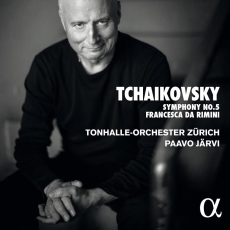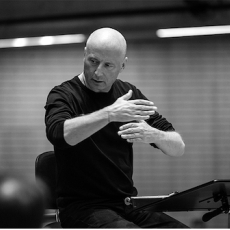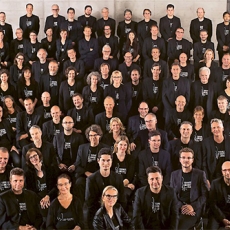Paavo Järvi - Tchaikovsky: Symphony No. 5 - Gramophone
On the cover of this Tchaikovsky Fifth, a smiling Paavo Järvi seems to indicate that all will be well. And his words in the promo for this first disc in his Tchaikovsky cycle with his new charges, the TonhalleOrchester Zürich, are sanguine: ‘I think of vulnerability and hope. It looks directly into our soul … Unlike the Sixth, the Fifth still holds out hope for life.’ The Fifth doesn’t stare into the abyss and sink to its knees like the Pathétique, but Fate dogs every movement and I find the finale, stoically marching onward, taking adversity on the chin, as unbearably moving as anything in Tchaikovsky’s final symphony. So does Järvi’s Fifth offer hope or does it all end in tears?
For the most part, this is a dry-eyed, disciplined account. Järvi sets a moderate tempo for the first movement, meticulously observing hairpin dynamics, the strings using the occasional – tasteful – portamento. Indeed, it’s the strings that make the telling impression here, big sighs not of emotion but of wistful remembrance amid the woodwind chatter. And there’s a lovely moment in the recap of the Molto più tranquillo (from 12'57") where Järvi gets the violins to play even softer (bar 432) than the preceding one – a magical moment, as if they’re fearful, catching their breath. There’s a touch of doom in the lower string swells of the closing bars, a hint of drama to come.
The horn solo in the Andante cantabile glows, displaying superb dynamic control. Järvi lets the music flow but builds up a nice head of steam without allowing the Tonhalle brass to obliterate the music. By largely playing the score straight, it helps Tchaikovsky’s ritenutos to really tell. Järvi keeps the third-movement Valse on the move, too.
But it’s the finale where the drama catches alight. The Allegro vivace erupts vigorously but the overall mood seems buoyant. Could we be about to snatch triumph from the jaws of defeat? But Järvi turns the screw hard so the Molto vivace (9'15") really lets rip. There’s stoicism, yes, in the molto maestoso theme but it heralds a headlong rush into the coda’s Presto, hurtling along until Järvi wrings out the final bars. It’s not a Fifth that’s as histrionic as either of Valery Gergiev’s recordings (the live Vienna Philharmonic wilder than his more lugubrious, drawn-out Mariinsky account), but it certainly hits the emotional spot and marks an auspicious start to Järvi’s Tonhalle Tchaikovsky cycle.
Just when you need to cool off after that sizzling coda of the Fifth, though, it’s a case of out of the emotional frying pan and into … the raging furnace that is the symphonic poem Francesca da Rimini. This isn’t, in truth, the fieriest Francesca out there. It’s moderately paced and smoothly balanced – I’d have liked greater brass impact here – but, again, Järvi wrenches the drama from the closing pages, the final bars held for all their worth.


